Napa Valley Wine Country Tour with Lunch
Redwoods and Wine Country tours
Wine Country Tour
California Tours
| |||||||||||||||||||||||||||||||||||||||||||||||||||
| |||||||||||||||||||||||||||||||||||||||||||||||||||
| |||||||||||||||||||||||||||||||||||||||||||||||||||
|

The old city of Acre (Akko) is a great walled city on the coast of the bay of Haifa. As the main natural port in the Galilee and Israel, it has a long history of conquest and ruling empires. It was one of the main Crusaders’ fortifications and ports. Acre was once a most important port in the Middle East, in the same league as Alexandria and Constantinople. The Middle Eastern campaign then collapsed and he withdraws to France.

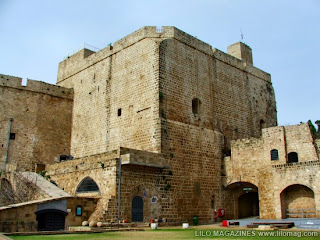
The outside of the Dead Sea is over 1,300 feet below sea level. The very base of the sea, in the sincere part, is over 2,300 feet under sea level. The Dead Sea has some of the most salty water on earth; as much as 35% of the water is dissolving salts! The Dead Sea is totally landlocked and it gets saltier with increasing depth.
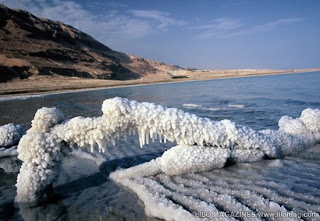

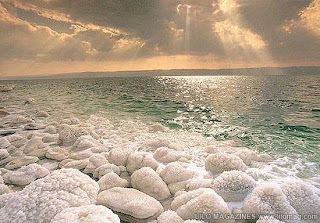

A resort town of 20,000 and active port, combine sea and desert, Eilat dishonesty at Israel’s southernmost tip. The sun forever shines in Eilat and the average daytime temperature hardly ever dip below 70°F (21°C), even in winter. The main attraction of Eilat is diving in the Red Sea, one of the world’s most impressive underwater preserves. You can see brilliantly tinted coral and fish and may see all from a venomous lionfish to a moray eel to a shark to a sea turtle to a manta ray.


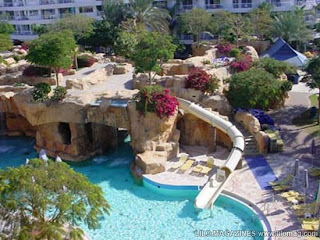

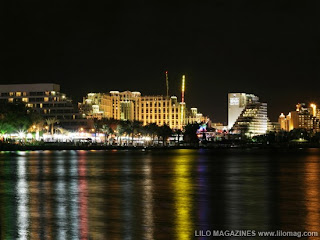
Haifa is not the best-looking city in the world, nor is it the most thrilling. It is not the biggest city in Israel, and unluckily not the most interesting city in Israel. Nevertheless, Haifa is my hometown, I was born and raised in it, and I have grown to like it. Haifa is located on and around the beautiful Carmel Mountain, next to the Haifa bay in northern Israel. The picture above was taken from my apartment in Ramat Chen, a district overlooking Nave Sha’anan, and the small Ziv neighborhood in particular.



All branches of the Israeli government are situated in Jerusalem, including Israel’s parliament, the Knesset, and the Supreme Court. Jerusalem is home to the Hebrew University and to the Israel Museum with its holy place of the Book. The Jerusalem Biblical Zoo has ranked constantly as Israel’s top tourist attraction places for Israelis. The popular Teddy Stadium is considered one of the leading football stadiums in the country. Jerusalem plays an important role in Judaism, Christianity, and Islam.




The Sea of Galilee has a hot and dry circumstances, sweet water, and calming environment. This makes it a preferred vacationland. During almost year round the lake is full of tourists and particularly local tourism on the weekends. The entire lake is bounded by public and private beaches, and high-rising hotels in Tiberias. The Sea of Galilee, known to Israelis as Lake Kinneret, is only 13 miles by 7 miles, but is one of the most well-known bodies of water in the world. It was on these beautiful shores that Jesus delivered sermons and performed miracles.

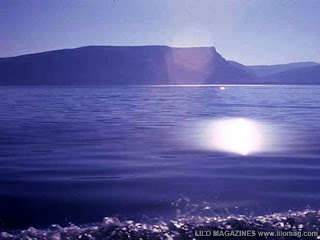
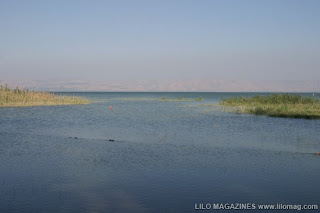

Mount Tabor is a hill rising 500m above the Jezreel Valley in the region of Galilee. Due to its strategic place along the north-south road, it has been a significant fortress since ancient times. Christians have recognized a rock atop Mt. Tabor as the place of the Transfiguration of Christ since the 4th century AD. Mount Tabor is located in Lower Galilee, at the eastern end of the Jezreel Valley, 17 kilometers (11 mi) west of the Sea of Galilee, in Israel.


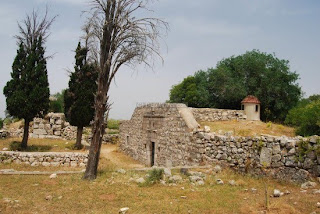

Tel Aviv insider is praise to the great city of Tel Aviv – Yaffo. These pages are all about the real Tel Aviv experience, the “insider” stuff. The small places that only the locals would know about. It was written by Tel Aviv residents for those wishing to learn or visit Tel Aviv. Come vacation us in sunny Tel Aviv and like its sandy, lively beach scene, even during winter months. If you are coming on an israel tour during winter from cold US eastern coast or Europe, you will be delighted with the mild weather and easy going spirit.




Tiberias has been a popular goal for tourist for more than 2,000 years. As early as Roman times, this thriving leisure spa, built around 17 natural limestone hot springs more than 600 feet below sea level, welcomed guests from every part of the olden world. Built by Herod Antipas, the city was named Tiberias in honor of the Roman Emperor Tiberius. Many churches were also building outside the walls of the Old City.



It is the capital of the northern section of the country and the biggest Arab city in Israel. Jesus grew up in Nazareth with his mother Mary, making the city one of more than a few Christian pilgrimage sites in the Holy Land. A real visit to Nazareth is much more than just a tour of the Old City. One of the basic rules for thoughtful Nazareth is to get to know its adjacent landscape: a horsehoe-shaped bally who’s curved in side faces the Jezreel.


The old taking out town of Falun, now the managerial center of Kopparberg County, lies on both banks of the river Falun between the Varpasjö and the Runnsjö. Falun is still a significant industrial town, and also attract many winter sports enthusiasts. It is the site of one of the world's most well-known snowboard competitions, the Battle.

The chief town of the County of Göteborg and Bohus, it has a university and a college of knowledge and is the see of a Lutheran bishop. Cultural life in Göteborg is established from end to end the art museum, annual film festival, amusement park Liseberg and free theatres.

The Swedish town of Helsingborg, intentionally located at the narrowest part of the Öresund opposed the Danish town of Helsingør (Elsinore), was for centuries hotly doubtful between Denmark and Sweden. There are plans to build a bridge over the Öresund.
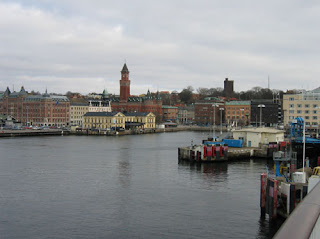
Kalmar, chief town of the county of Kalmar in southeastern Sweden, lies on the Kalmarsund, which separate the island of Öland from the mainland. Thanks to this good place, there was already a trading post here in Viking times. The town's modern industries include engineering and motor vehicles

Boating in the archipelago or canoeing on Klarälven is well-liked behavior along with fishing and watersports. In 1905 discussions took place here on the closure of the union between Sweden and Norway. Karlstad is now a considerable industrial town.

Lund, 20km/12.5mi northeast of Malmö in the province of Skåne, is consideration to have been found in 990 by the Danish king Swein Forkbeard as the secular and religious center of the eastern part of his kingdom. Lund has an active nightlife, though much is geared to the abundance of students. There is a city theatre, and the Lund Carnival held every fourth year since 1849.

Malmö lies on the west shore of Skane, opposite the Danish capital of Copenhagen across the Öresund. A major port and Sweden's third biggest city, it is an important economic and cultural center. The town's first defenses were built during the reign of the Danish king Eric of Pomerania, who also decided Malmö its coat of arms in 1473. The town approved to Sweden under the treaty of Roskilde (1658).

Stockholm dishonesty on a number of islands and peninsulas at the outflow of Lake Mälar into the Baltic, which at this time forms a deep inlet. The charm of its setting lies in the intermingling of land and water - the skerries fringing the coast, the crags rearing up from the sea, the complicated pattern of waterways encompassing the city.

The most notable building in Uppsala is the Cathedral, visible from most part of town. It is the chief town of the county of Uppsala and the region of Uppland and the seat of the Lutheran Archbishop of Sweden. The people of Uppland, the Svea, enjoy the right of electing and deposing their kings.

Växjö lies at the north end of the lake of that name. It acknowledged its municipal charter in 1342 and is now chief town of Kronoberg county. Växjö is home to two distinguished castles - Kronoberg Castle, finished in the 15th century and Teleborg Castle built 1900. It became a spiritual center in the 12th century, when its first church was build by St Sigfrid, a disciple from England.
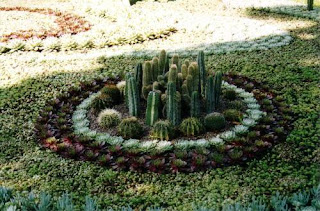
The island's capital, Visby (pop. 20,000), the "city of roses and ruins" on the northwest shore of Gotland, is the seat of the governor of Gotland county and the see of a bishop. Within its enclosed walls it has sealed much of its medieval environment and received the name of UNESCO World Heritage Site.
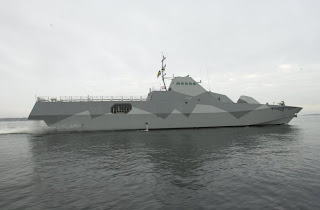
Yangon, the capital city, is the most important gateway to Myanmar. Evergreen and cool with lush hot trees, shady parks and idyllic lakes, Yangon has earned the name of "The Garden City of the East". If you do not think it, please just take a satellite view of green Yangon on internet using a tool like Google Earth. In adding to those nature's presents, Yangon is home to polished pagodas and, churches and monument of British colonial era.

Situated 80 km north east of Yangon, Bago makes a perfect day trip or can also be an element of 2 days trip to Kyaikhtiyo Golden Rock Pagoda or even a longer tour including Mawlamyine Moulemein). It is home to a big reclining Buddha image and the golden Shwemawdaw Pagoda, a notable landmark in Bago. There is a noted monastery where an end is made to take photos of Buddhist monk’s position in queue in the late morning for their last meal of the day.
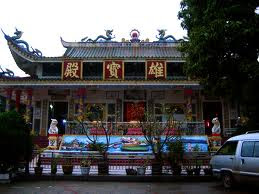
The rather rigorous trip to this unique pilgrimage site is always satisfied with a fabulous sight of a huge rock weighing 600 tons, insecurely balanced at the edge of a crag of Paung Laung Mountain Chain, around 200 km Southeast of Yangon. On top of the boulder is a delicate pagoda, enshrined with a single strand of hair relic of Buddha, which is said to be the prime force maintains the balance of this huge boulder.

Mawlamyine is also recognized as Moulemein, a name given by the British colonial settlers. Visitors to Mawlamyine are simply charmed at the scenic beauty and its temperate climate. The impression of post-colonial decay is still palpable here as this town was an administration hub of British Raj in the early 19th Century. It’s also a good-looking and tropical town with a ride of stupa-capped hills on one side and the sea on the others.

The town of Bagan (formerly spelled as "Pagan"), central Myanmar (Burma), located on the left bank of the Irrawaddy River and approximately 90 miles (145 km) southwest of Mandalay. The site of an old capital city of Myanmar, Pagan is a pilgrimage centre and contains very old Buddhist shrines that have been restored and repaint and are in current use. Ruins of other shrine and pagodas cover a wide area. The most attractive of the temples are Ananda Temple, Dhammayangyi Temple, Shwezigon Pagoda, and Thatbyinnyu Temple.

A side trip from Bagan set in the middle of lovely hill and forest landscape, Mt. Popa is a steep-sided volcanic peak devoted to the famous "Nat" spirits of Myanmar. A shrine to these fear and appreciated conventional character lies at the foot of "Taungkalat", a volcanic plug. The nearby and the Mount Popa itself are enclosed with leafy and lush forest which is in abundance filled with various species of flora and fauna. It can be called an oasis in the central dry zone of Myanmar.

It is second largest city and the last Royal Capital of Myanmar. Many historical buildings and attractive sights, temples and pagodas, with excursions to close by attractions avail. This is also a center for silk and cotton weaving. The Mandalay hill, the Maha Muni Buddha Image is the ideal images of Buddhism. Mandalay houses at smallest amount a third of the nation's 150,000 monks and nuns. Mandalay is surrounded by its ancient neighboring cities as Mingun, Sagaing, Innwa (Ava), and Amarapura.

A cool hill station, over 1,000 meters above sea level, found during colonial times and a valuable side trip from Mandalay. Here company can enjoy beautiful scenery, a cool climate and nostalgic atmosphere of former days in its old buildings and botanical gardens (now known as Kandawgyi National Park, home to varied species of birds, insects, orchids and trees. The sightseer will find the markets in Pyin Oo Lwin very inviting. In the surrounding, there are many water falls among which Pwe Kauk and Anisakan falls are well known.

A completely special dimension to the Myanmar travel experience. Here the stress is on lovely lake scenery, hazy distant mountains and interesting local society. The vast lake, natural and clean, is studded with floating islands and is renowned for its scenic beauty, unique leg-rowers and colorful local markets. This vast picturesque lake, 900 metres above sea-level, is one of the main tourist attractions in Myanmar. The lakeshore and lake islands bear 17 villages on stilts, mostly occupied by the Intha people.

Kalaw stand high on the western edge of the Shan Plateau. It is 70 km west of Taungyi, about middle along the Thazi-Taungyi road. This was a popular hill station in the British days and it is still a nonviolent and quiet place. At an altitude of 1320 m it is also pleasantly cool and a good place for hiking amid gnarled pines, bamboo groves and rugged mountain scenery. A former colonial British hill station, this small-town offers cool temperatures (Kalaw sits at 1,300 meters elevation) and plenty of trekking opportunities.

Pindaya is a small quiet town balanced on the bank of the placid Botaloke Lake. Pindaya cave is a huge cave where thousands of Buddha images of teak wood, marble, alabaster, brick, cement and lacquer in various size and shape are enshrined since the 11th century. Huge monastery compounds with numerous pagodas and temples in different stages of dilapidation are much respected by such ethnic groups as the Shan, Danu and Paoh living in the environs of Pindaya.

Kyaing Tong is known for its scenic beauty and many colorful ethnic tribes. located in the eastern Shan State and 452 km from Taunggyi and 176km from Tachileik. Places of interest around Kyaingtong are, the Spa, Naung Tong Lake, Sunn Taung Monastery, Central market and Traditional Lacquer ware works and weaving factory.There are many villages of various ethnic tribes resided around Kyaing Tong.





